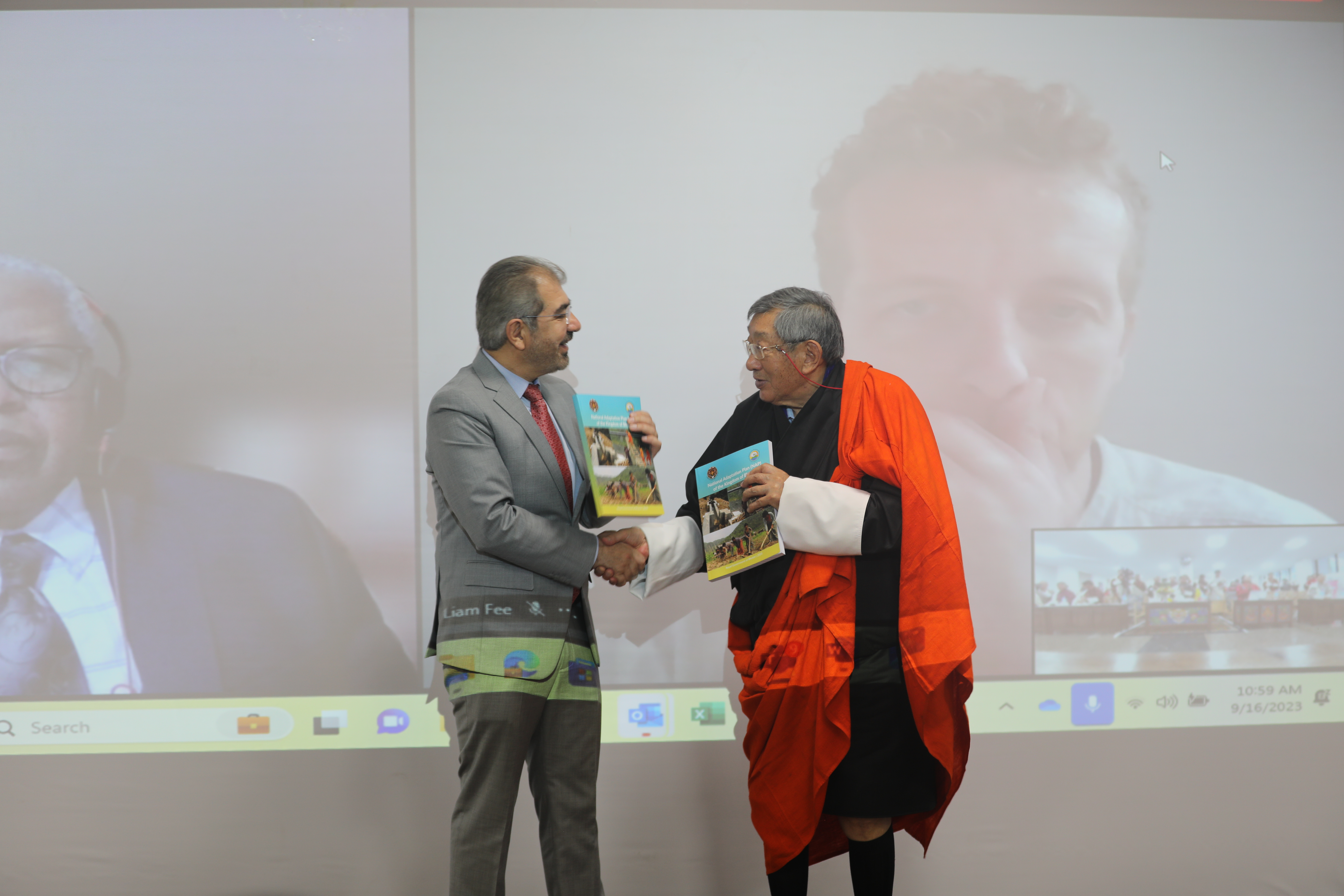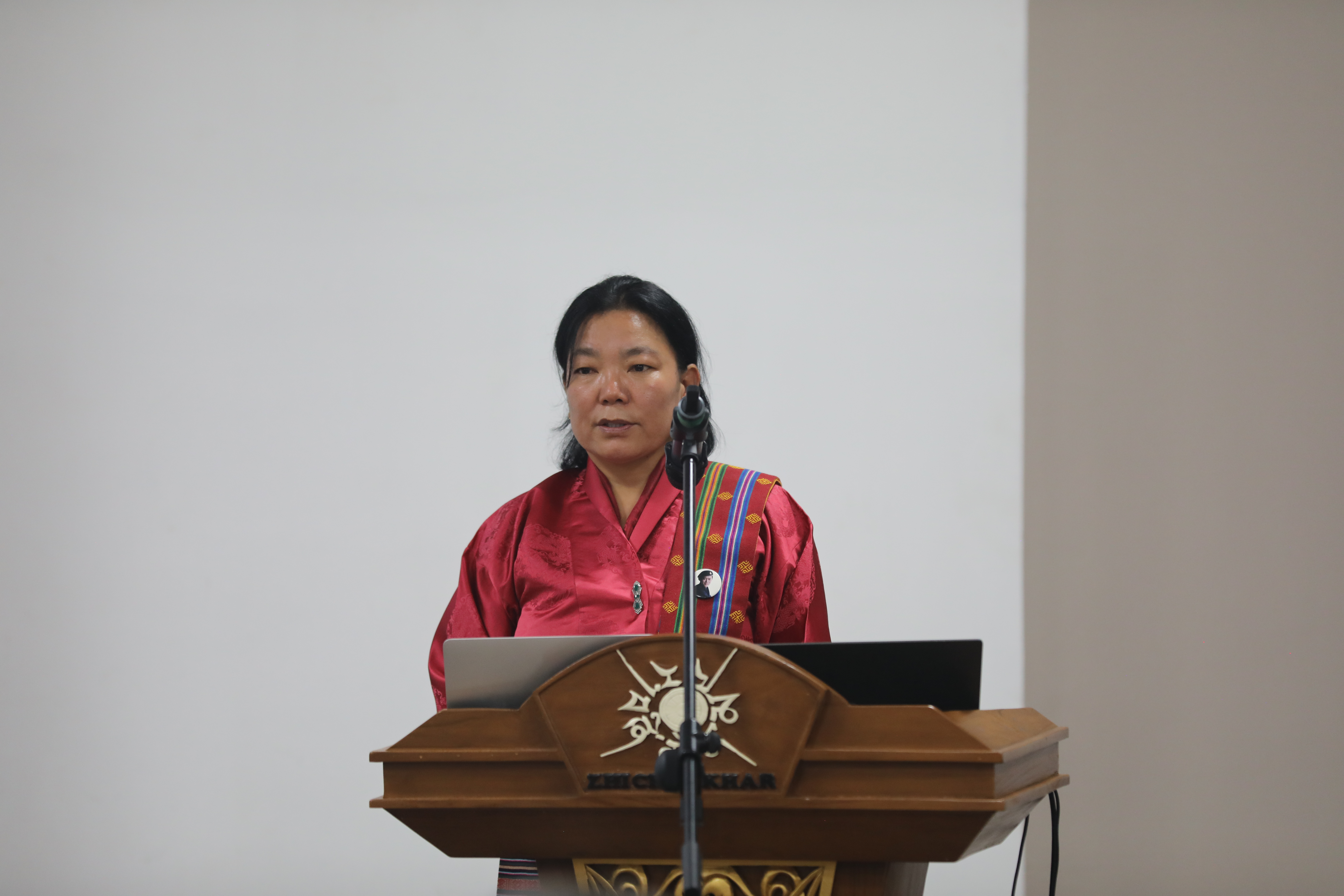The National Adaptation Plan identifies and integrates medium-and-long-term climate adaptation priorities into the development planning to build the country’s resilience to the impact of climate change.
Bhutan launches its first National Adaptation Plan
September 16, 2023

UNDP Resident Representative Mohammad Younus and Dasho Paljor J Dorji launched Bhutan's first NAP
Thimphu, 16 September 2023: The launch of Bhutan’s first National Adaptation Plan (NAP), today coinciding with the World Ozone Day, marks a key milestone in its climate commitment. Bhutan is now among the 16 other Least Developed Countries that have successfully launched this key climate adaptation plan.
The NAP process helps countries to embed adaptation in core development decision making to make people, places, ecosystems, and economies more resilient to climate shocks. Bhutan began its NAP formulation process in 2019 with the launch of a US$ 2.7 million project, supported by the Green Climate Fund and UNDP. The process was led by the erstwhile National Environment Commission Secretariat with technical support from UNDP.
Despite being carbon negative, Bhutan bears the brunt of climate change with relatively lower capacities to adapt. The NAP takes a medium- to long-term approach to climate adaptation, beyond addressing urgent and immediate threats of climate change. It analyzes climate risks in seven climate vulnerable sectors of water, agriculture and livestock, forests and biodiversity, human settlement and climate-smart cities, health, energy, climate service and disaster risk reduction.
Based on the assessments, the NAP identifies medium-and-long-term adaptation priorities—a much-needed shift from ad hoc, project-based adaptation interventions focused on address short-term threats toward more strategic and programmatic approaches to adaptation. The NAP will guide the implementation of these priorities through integration into national, sectoral, and local development plans.

Tashi Pema, Director General, Department of Environment and Climate Change
“The NAP launch today is timely and would guide sectors to plan and prioritize adaptation in the country’s 13th Five-Year Plan. It also demonstrates Bhutan’s commitment to meeting the goals of Paris Agreement,” said Tashi Pem, Director General of the Department of Environment and Climate Change.
The next big task is implementation, for which Bhutan would require massive technical as well as financial support. Close to $14bn is needed to finance climate adaptation measures identified through NAP for implementation over the next 15 years.
UNDP Resident Representative Mohammad Younus reaffirmed UNDP’s continued support. “The climate risk assessments carried out through NAP have already helped Bhutan in the formulation of two new climate projects. One is the “Advancing Climate Resilience of the Water Sector in Bhutan (ACREWAS)” project launched recently. It is aimed at building climate resilience of the water sector. The other project, which is being developed, seeks to build urban resilience. We will continue supporting Bhutan’s efforts to access global climate finance and other innovative forms of financing crucial for the successful implementation of NAP.”
The NAP was prepared through a participatory approach engaging the local government, central agencies, private sector, civil society, and academia. This helped ensure NAP is transparent, country-driven, gender sensitive and inclusive, taking into consideration the impacts of climate change on vulnerable groups, communities, and ecosystems.
The NAP process has also invested heavily in capacity building on climate change adaptation planning and implementation. Close to 700 stakeholders—159 female—from the government, academia, CSOs, the private sector and media have been trained. A monitoring and evaluation system to assess climate resilience is being developed.
The NAP aligns with Bhutan’s Gross National Happiness Index and the national vision for climate change which is, “A prosperous, resilient and carbon neutral Bhutan where the pursuit of Gross National Happiness for the present and future generations is secure under a changing climate”.
It also aligns with the Climate Change Policy 2020 adopted to ensure that Bhutan’s pursuit of ‘ecologically balanced sustainable development’ is resilient and contributes to Bhutan’s goal to remain carbon neutral at all times.
In addition, NAP builds on the country’s past and ongoing efforts to identify and respond to climate change impacts, including the National Adaptation Programme of Action projects and Bhutan’s Nationally Determined Contributions under the Paris Agreement, on all of which UNDP worked closely with the government partners.
The NAP will be updated every five years at the same frequency as the Nationally Determined Contributions to inform the country’s five-year development plans.
For more information, please contact:
Ms. Dechen Wangmo, Communications Analyst, UNDP Bhutan, Email: dechen.wangmo@undp.org

 Locations
Locations

